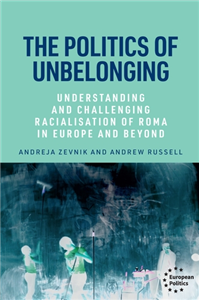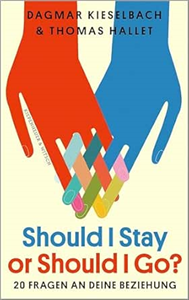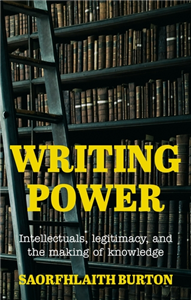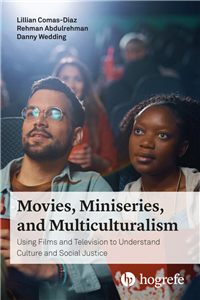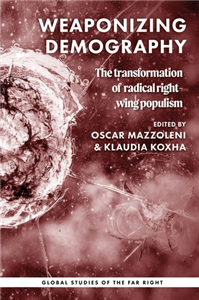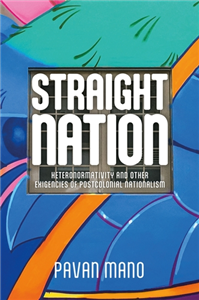Your Search Results
-
Belcastro Agency
Belcastro Agency is a full-service literary agency representing authors writing adult and young adult fiction. We are a passionate, hands-on, editorially-focused agency and work closely with our writers in developing manuscripts and proposals for submission. In addition, we actively manage subsidiary rights for the projects we represent including foreign translation, audio, and film/television rights.
View Rights Portal
-
Promoted Content2025
Among Neighbours
The strangest relationship of our lives
by Bernd Imgrund
There are many things in life that we are (more or less) free to choose: our circle of friends, our workplace, our place of residence. However, we have to take some communities as they come: We cannot choose our family or our neighbours, for example. Why this does not only lead to the much-vaunted idyllic sense of belonging and what tensions forced social relationships can cause: This is the subject of this fascinating collection of essays by Bernd Imgrund. It sheds light on a piece of social history that we all know from our own experience: who hasn't had an argument with their immediate neighbour or made fun of the residents of the neighbouring district? But it is by no means only negative aspects that characterise neighbourly relations. Pride in one's neighbourhood, help within a village community: the many advantages of a social community, its importance and its representation in art and literature have also found their way into this book.
-
Promoted ContentHumanities & Social SciencesOctober 2024
Brexit and citizens’ rights
History, policy and experience
by Djordje Sredanovic, Bridget Byrne
The book offers interdisciplinary analyses of the impact of Brexit on the rights of EU27 citizens in the UK, Britons in the UK and the EU, and third-country nationals. It combines a historical examination of citizenship and migration between the UK, Europe and the Commonwealth with the analysis of policies and of the experiences of the different groups impacted by Brexit. The book discusses Brexit within the larger history and dynamics of UK and EU citizenship and migration. The individual chapters look at how Brexit is transforming the citizenship rights of different groups, including issues of loss of citizenship and experiences of naturalisation. They further examine the fears of the groups impacted, and larger issues of belonging, marginalisation, political orientations and mobilisations that cross legal status, nationality, ethnicity, race and class.
-
 Trusted Partner
Humanities & Social SciencesMay 2025
Trusted Partner
Humanities & Social SciencesMay 2025The politics of Unbelonging
Understanding and challenging racialisation of Roma in Europe and beyond
by Andreja Zevnik, Andrew Russell
This book offers a comprehensive study of racialisation of Romani communities in Europe (and beyond). Drawing on the idea of unbelonging it demonstrates how Romani communities are placed in a position of visceral visibility by local, national and international institutions as well as public media discourses. It shows how such positionality impacts the ability of Roma to self-represent politically and build capacity for change. From the position of unbelonging the book offers an account of Romani agency which both challenges the mainstream representations of Roma but also develops an alternative none-nation-state sense of belonging. In doing so the book outlines an account of Romani alternative expressions in order to take control of their relationship with their own history, future, knowledge, and identity, and the rest of the society.
-
 Trusted Partner
Trusted Partner
Should I Stay or Shoul I Go?
20 Fragen an deine Beziehung
by Hallet, Thomas & Kieselbach, Dagmar
Die Liebe neu entfachen oder sich doch verabschieden? 20 klärende Fragen für Frauen in langjährigen Beziehungen. Fühlen Sie sich in Ihrer Beziehung festgefahren oder stecken gar in einer Ehekrise?Haben Sie das Gefühl, nur noch nebeneinanderher zu leben?Fehlt die Leidenschaft, und der Zweifel an der Partnerschaft nagt an Ihnen? Besonders Frauen in der Lebensmitte stellen sich oft die Frage: War das schon alles oder kommt da noch was? Soll ich gehen oder bleiben? In »Should I Stay or Should I Go?« stellen die erfahrenen Paartherapeuten Dagmar Kieselbach und Thomas Hallet, selbst seit über 30 Jahren verheiratet, 20 essenzielle Fragen, die Ihnen dabei helfen, ehrlich Bilanz zu ziehen. Anhand von aufschlussreichen Fallbeispielen aus ihrer Praxis und konkreten Hilfestellungen zeigen sie Wege auf, wie Sie Ihre Beziehung wieder mit Leben füllen können – oder woran Sie erkennen, dass es Zeit ist, loszulassen und über eine Scheidung oder Trennung nachzudenken. Persönlich, provokant und praxisnah liefert dieses Buch wertvolle Einsichten statt plumpe Ratgeberfloskeln. »Das Einzige, was nachweislich glücklich macht, sind gute Beziehungen. Dank dieses Buches wissen wir, ob unser Miteinander überhaupt ›gut‹ ist und wie wir es vor allem besser machen können. Ein Muss für alle, die Liebe in ihrem Leben haben möchten!« Nicole Staudinger
-
 Trusted Partner
Literature & Literary StudiesJune 2025
Trusted Partner
Literature & Literary StudiesJune 2025Polysituatedness
A poetics of displacement
by John Kinsella
This book is concerned with the complexities of defining 'place', of observing and 'seeing' place, and how we might write a poetics of place. From Kathy Acker to indigenous Australian poet Jack Davis, the book touches on other writers and theorists, but in essence is a hands-on 'praxis' book of poetic practice. The work extends John Kinsella's theory of 'international regionalism' and posits new ways of reading the relationship between place and individual, between individual and the natural environment, and how place occupies the person as much as the person occupies place. It provides alternative readings of writers through place and space, especially Australian writers, but also non-Australian. Further, close consideration is given to being of 'famine-migrant' Irish heritage and the complexities of 'returning'. A close-up examination of 'belonging' and exclusion is made on a day-to-day basis. The book offers an approach to creating poems and literary texts constituted by experiencing multiple places, developing a model of polyvalent belonging known as 'polysituatedness'. It works as a companion volume to Kinsella's earlier Manchester University Press critical work, Disclosed Poetics: Beyond Landscape to Lyricism.
-
 Trusted Partner
Humanities & Social SciencesSeptember 2025
Trusted Partner
Humanities & Social SciencesSeptember 2025Writing power
Intellectuals, legitimacy, and the making of knowledge
by Sarah Victoria Alexandra Burton
Writing power radically rethinks the place of the canon and canonicity as objects and concepts in contemporary academia and the everyday intellectual practices of academics. It is distinctive in its demonstration of how academics' engagements with canons shape their writing practices but also how scholars' writing practices, spaces, proclivities, and desires shape the canon and changing ideas of value in canonicity. The book thinks through frequently discussed problems of legitimacy and knowledge production from fresh perspectives of lived experience and the everyday to offer new insights into the politics of knowledge in contemporary social sciences.
-
 Trusted Partner
Humanities & Social SciencesMarch 2017
Trusted Partner
Humanities & Social SciencesMarch 2017Engendering whiteness
White women and colonialism in Barbados and North Carolina, 1627–1865
by Cecily Jones
Engendering whiteness represents a comparative analysis of the complex interweaving of race, gender, social class and sexuality in defining the contours of white women's lives in Barbados and North Carolina during the era of slavery. Despite their gendered subordination, their social location within the dominant white group afforded all white women a range of privileges. Hence, their whiteness, as much as their gender, shaped these women's social identities and material realities. Crucially, as the biological reproducers of whiteness, and hence the symbolic and literal embodiment and bearers of the state of freedom, they were critical to the maintenance and reproduction of the cultural boundaries of 'whiteness', and consequently the subjects of patriarchal measures to limit and control their social and sexual freedoms. Engendering whiteness draws on a wide variety of sources including property deeds, wills, court transcripts, and interrogates the ways in which white women could be simultaneously socially positioned within plantation societies as both agents and as victims. It also reveals the strategies deployed by elite and poor white women in these societies to resist their gendered subordination, to challenge the ideological and social constraints that sought to restrict their lives to the private domestic sphere, to protect the limited rights afforded to them, to secure independent livelihoods, and to create meaningful existences. A fascinating study that with be welcomed by historians of imperialism as well as scholars of gender history and women's studies.
-
 Trusted Partner
Health & Personal Development
Trusted Partner
Health & Personal DevelopmentMoths in the Mind
A Way out of Anorexia
by Hanah Zacher
“Negative thoughts swarm like moths in my mind.” Linn’sstory shows how anorexia can silently take hold – long beforeit’s recognized. This powerful graphic novel exploresbody image, belonging, and self-worth with raw honesty.An expert section by psychologist Guy Bodenmann offersaccessible guidance on eating disorders. • Poignant graphic novel on anorexia’s slow onset• Honest insights into self-doubt and identity• Expert info on eating disorders included
-
 Trusted Partner
Health & Personal Development
Trusted Partner
Health & Personal DevelopmentMovies, Miniseries and Multiculturalism
Using Films and Television to Understand Culture and Social Justice
by Lillian Comas-Diaz / Rehman Abdulrehman / Danny Wedding
A powerful guide to understanding cultural identity and bias – through f lm and TV. This practical book uses com-pelling scenes to raise awareness for racism, patriarchy, and social justice while helping readers refl ect on their own perspectives. With relatable examples and thoughtful prompts, it offers accessible insights into multicultural living and the emotional impact of media narratives. • Uses movies and shows to teach cultural awareness • Practical tools for refl ection and growth • Tackles identity, bias, and belonging
-
 Trusted Partner
Trusted Partner
-
 Trusted Partner
Trusted Partner
-
 Trusted Partner
Literary studies: fiction, novelists & prose writersJanuary 2015
Trusted Partner
Literary studies: fiction, novelists & prose writersJanuary 2015Making home
Orphanhood, kinship and cultural memory in contemporary American novels
by Maria Holmgren Troy, Elizabeth Kella, Helena Wahlström
Making home explores the figure of the orphan child in a broad selection of contemporary US novels by popular and critically acclaimed authors Barbara Kingsolver, Linda Hogan, Leslie Marmon Silko, Marilynne Robinson, Michael Cunningham, Jonathan Safran Foer, John Irving, Kaye Gibbons, Octavia Butler, Jewelle Gomez and Toni Morrison. The orphan child is a continuous presence in US literature, not only in children's books and nineteenth-century texts, but also in a variety of genres of contemporary fiction for adults. Making home examines the meanings of this figure in the contexts of American literary history, social history and ideologies of family, race and nation. It argues that contemporary orphan characters function as links to literary history and national mythologies, even as they may also serve to critique the limits of literary history, as well as the limits of familial and national belonging.
-
 Trusted Partner
Literature & Literary StudiesAugust 2014
Trusted Partner
Literature & Literary StudiesAugust 2014Making home
Orphanhood, kinship and cultural memory in contemporary American novels
by Maria Holmgren Troy, Sharon Monteith, Elizabeth Kella, Nahem Yousaf, Helena Wahlstrom
Making home explores the figure of the orphan child in a broad selection of contemporary US novels by popular and critically acclaimed authors Barbara Kingsolver, Linda Hogan, Leslie Marmon Silko, Marilynne Robinson, Michael Cunningham, Jonathan Safran Foer, John Irving, Kaye Gibbons, Octavia Butler, Jewelle Gomez and Toni Morrison. The orphan child is a continuous presence in US literature, not only in children's books and nineteenth-century texts, but also in a variety of genres of contemporary fiction for adults. Making home examines the meanings of this figure in the contexts of American literary history, social history and ideologies of family, race and nation. It argues that contemporary orphan characters function as links to literary history and national mythologies, even as they may also serve to critique the limits of literary history, as well as the limits of familial and national belonging.
-
 Trusted Partner
Literature & Literary StudiesJuly 2021
Trusted Partner
Literature & Literary StudiesJuly 2021Making home
Orphanhood, kinship and cultural memory in contemporary American novels
by Maria Holmgren Troy, Elizabeth Kella, Helena Wahlstrom, Maria Holmgren Troy
Making home explores the figure of the orphan child in a broad selection of contemporary US novels by popular and critically acclaimed authors Barbara Kingsolver, Linda Hogan, Leslie Marmon Silko, Marilynne Robinson, Michael Cunningham, Jonathan Safran Foer, John Irving, Kaye Gibbons, Octavia Butler, Jewelle Gomez and Toni Morrison. The orphan child is a continuous presence in US literature, not only in children's books and nineteenth-century texts, but also in a variety of genres of contemporary fiction for adults. Making home examines the meanings of this figure in the contexts of American literary history, social history and ideologies of family, race and nation. It argues that contemporary orphan characters function as links to literary history and national mythologies, even as they may also serve to critique the limits of literary history, as well as the limits of familial and national belonging.
-
 Trusted Partner
Humanities & Social SciencesApril 2025
Trusted Partner
Humanities & Social SciencesApril 2025Beyond the antislavery haven
Slavery in early Canadian print culture, 1789–1889
by Ellie Bird
This book challenges the idealised narrative of Canada as an antislavery haven for self-liberated people to explore Canada's complicated relationship with slavery. Examining advertisements, abolitionist texts and narratives about slavery in Canadian newspapers and the texts that were printed alongside them, it shows how Canadian readers and enslavers developed an image of themselves as belonging to an antislavery community even while recognising their own complicity in slavery. The book explores narratives that depict the lives of Black settlers in Canada and how slave narratives circulated in Canada. Canada's relationship with slavery is far more complicated than seeing it as either an antislavery haven or a slaveholding space. Canada was connected to Britain, France, the Caribbean and the United States and this was central to how Canadians and Canadian readers fashioned their self-image in relation to slavery.
-
 Trusted Partner
Humanities & Social SciencesApril 2023
Trusted Partner
Humanities & Social SciencesApril 2023The fall and rise of the English upper class
Houses, kinship and capital since 1945
by Daniel R. Smith
The fall and rise of the English upper class explores the role traditionalist worldviews, articulated by members of the historic upper-class, have played in British society in the shadow of her imperial and economic decline in the twentieth century. Situating these traditionalist visions alongside Britain's post-Brexit fantasies of global economic resurgence and a socio-cultural return to a green and pleasant land, Smith examines Britain's Establishment institutions, the estates of her landed gentry and aristocracy, through to an appetite for nostalgic products represented with pastoral or pre-modern symbolism. It is demonstrated that these institutions and pursuits play a central role in situating social, cultural and political belonging. Crucially these institutions and pursuits rely upon a form of membership which is grounded in a kinship idiom centred upon inheritance and descent: who inherits the houses of privilege, inherits England.
-
 Trusted Partner
Humanities & Social SciencesJuly 2026
Trusted Partner
Humanities & Social SciencesJuly 2026Weaponizing demography
The transformation of radical right-wing populism
by Oscar Mazzoleni, Klaudia Koxha
This book introduces a new framework for understanding how the radical right reimagines demographic change as an existential threat. Across Europe and the Americas, low birth rates, immigration, and gender equality are reframed as signs of civilisational decline. This volume explores how radical right actors mobilise fears around fertility, migration, race, family, and sexuality through narratives of crisis, ethnic purity, and control over borders, reproduction, and social norms. It examines conspiracy thinking fuelled by demographic anxiety to justify attacks on gender and sexual rights and reinforce exclusionary ideas of national belonging. Grounded in empirical case studies and interdisciplinary approaches, this book reveals how these narratives converge to reinforce dominance of a native, heteronormative, Christian population. In linking domains often treated separately, it provides a timely and critical perspective on the evolving logic of radical right politics worldwide.
-
 Trusted Partner
Humanities & Social SciencesOctober 2020
Trusted Partner
Humanities & Social SciencesOctober 2020Dealing with Borderline Personality Disorder
by Bohus, Martin; Reicherzer, Markus
About three out of one hundred adults experience a longer borderline episode once in their lives: violently fluctuating emotions, suicidal crises, self-harm and deep despair are accompanied by problems in the interpersonal sphere. These particularly affect the basic feeling of “belonging” to others, so that profound loneliness and lostness often alternate with disappointment and anger. This guidebook provides information about the various characteristics of borderline personality disorder and its origin. The aim is to encourage those affected to seek effective psychotherapeutic treatment focusing on Dialectical Behavioral Therapy (DBT), which was specifically developed for the treatment of borderline disorder and has proven to be very effective. The structure and workings of DBT are explained, pressing questions are addressed, and initial guidance for self-help is provided as well as assistance for relatives and references to self-help groups.
-
 Trusted Partner
Political science & theoryJuly 2015
Trusted Partner
Political science & theoryJuly 2015Ireland and migration in the twenty-first century
by Mary Gilmartin
Migration is one of the key issues in Ireland today. This book provides a new and original approach to understanding contemporary Irish migration and immigration, showing that they are processes that need to be understood together rather than separately. It uses a wide range of data - from statistical reports to in-depth qualitative studies - to show these connections. The book focuses on four key themes - work, social connections, culture and belonging - that are common to the experiences of immigrants, emigrants and internal migrants. It includes a wide selection of case studies, such as the global GAA, the campaign for emigrant voting, and the effects of migration on families. Clearly written and accessible, this book is an invaluable resource for students and scholars of Irish migration. It also has broader relevance, as it suggests a new approach to the study of migration nationally and internationally.
-
 Trusted Partner
Humanities & Social SciencesMarch 2025
Trusted Partner
Humanities & Social SciencesMarch 2025Straight nation
Heteronormativity and other exigencies of postcolonial nationalism
by Pavan Mano
In Straight Nation, Pavan Mano reveals the logic of straightness that sits at the heart of postcolonial nationalism in Singapore. Mano rejects the romantic notion of the nation as a haven of belonging, showing it to be a relentless force that is allied with heteronormativity to create a host of minoritized and xenologized figures. Through meticulous exploration and close reading of a swathe of texts, Mano unveils the instrumental role of sexuality in structuring the national imaginary. The book adroitly demonstrates how queerness is rendered foreign in postcolonial Singapore and functions alongside technologies of "race", gender, and class. A provocative critique of narrow contemporary identity politics and its concomitant stymying of a more ambitious political critique, Straight Nation sets out an argument that moves beyond the negativity of traditional critique into a space of (re)thinking, (re)building and (re)imagining.







